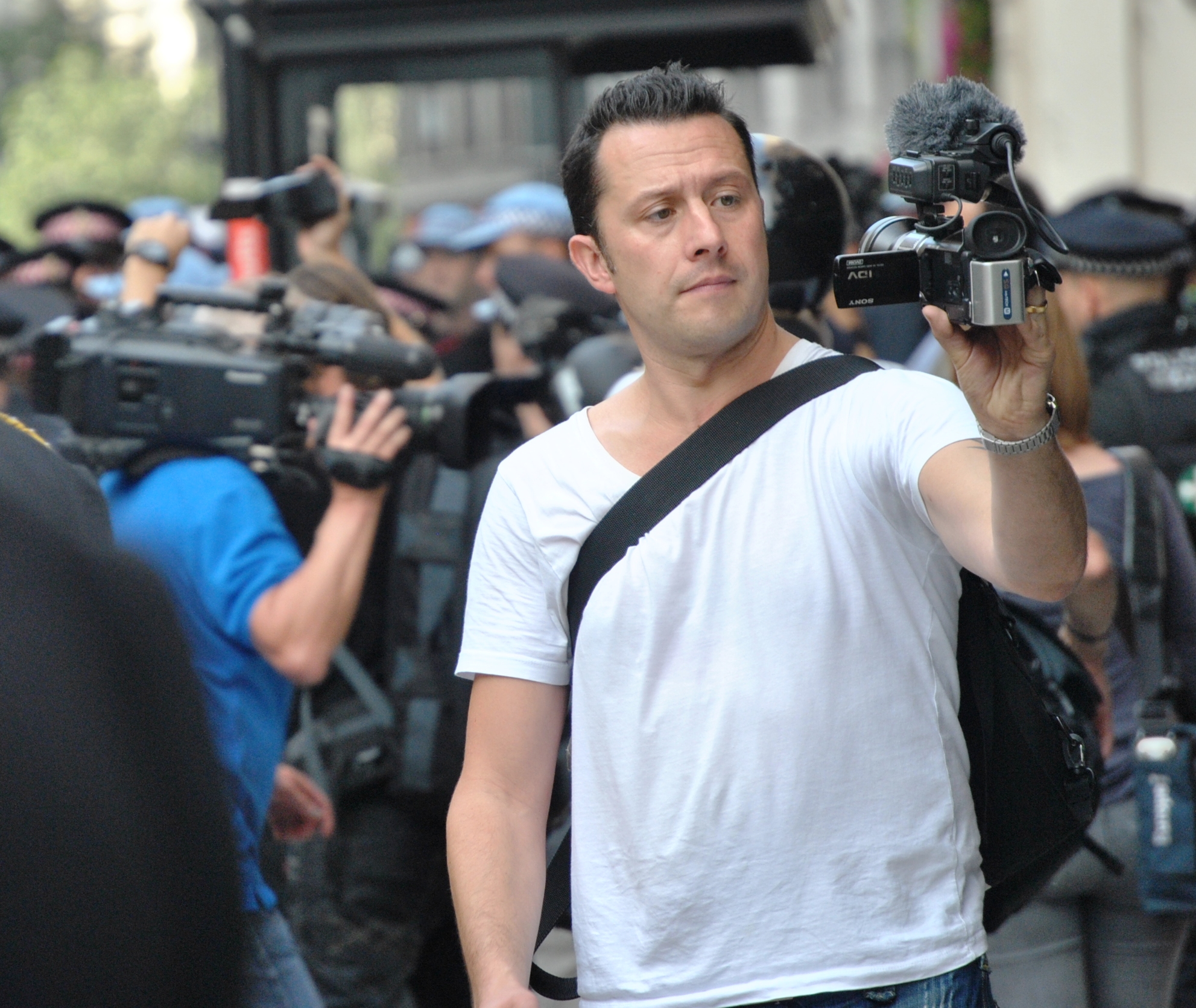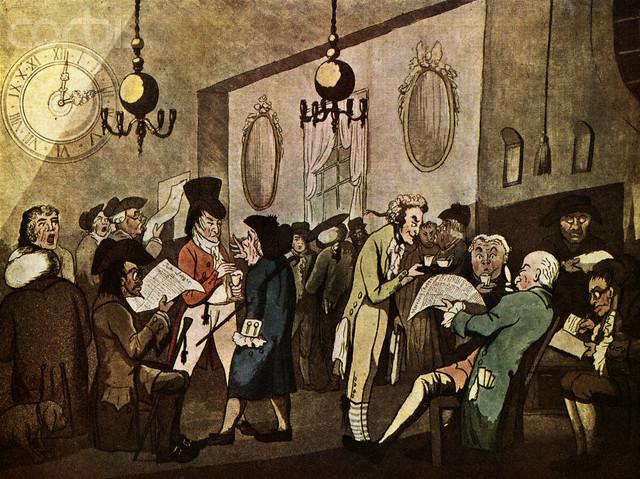|
Media Reform
Media reform is the attempt to reform mass media. Media reform movement coincides with media democracy as a concept and is interlinked with the agenda setting theory. In 1922, in his book, ''Public Opinion'', Walter Lippmann argued that the mass media are the principal connection between events in the world and the images in the minds of the public. He stated that the media has an ability to influence the thoughts and opinions of the members of public consuming the content. He did not use the term "agenda setting", but scholars have come to agree that was the core concept. The traditional media reform movement has undergone significant changes with the rise of citizen journalism, whereby citizens play an active role in the process of collecting, reporting, analyzing, and disseminating news and information. The modern media reform movement relies heavily on the Internet and the numerous social networking tools it offers and the Internet coupled with citizen curated content has led t ... [...More Info...] [...Related Items...] OR: [Wikipedia] [Google] [Baidu] |
Mass Media
Mass media include the diverse arrays of media that reach a large audience via mass communication. Broadcast media transmit information electronically via media such as films, radio, recorded music, or television. Digital media comprises both Internet and mobile mass communication. Internet media comprise such services as email, social media sites, websites, and Internet-based radio and television. Many other mass media outlets have an additional presence on the web, by such means as linking to or running TV ads online, or distributing QR codes in outdoor or print media to direct mobile users to a website. In this way, they can use the easy accessibility and outreach capabilities the Internet affords, as thereby easily broadcast information throughout many different regions of the world simultaneously and cost-efficiently. Outdoor media transmits information via such media as augmented reality (AR) advertising; billboards; blimps; flying billboards (signs in tow of airpl ... [...More Info...] [...Related Items...] OR: [Wikipedia] [Google] [Baidu] |
Media Democracy
Media democracy is a democratic approach to media studies that advocates for the reform of mass media to strengthen public service broadcasting and develop participation in alternative media and citizen journalism in order to create a mass media system that informs and empowers all members of society and enhances democratic values. Media democracy is both a theory and a social movement. It is against concentration in the ownership of media, and it champions diversity of voices and perspectives within the news system. Definition Media democracy focuses on the empowerment of individual citizens and on the promotion of democratic ideals through the spread of information. Additionally, the approach argues that the media system itself should be democratic in its own construction, shying away from private ownership or intense regulations. Media democracy entails that media should be used to promote democracy and that media itself should be democratic. For example, it views media owners ... [...More Info...] [...Related Items...] OR: [Wikipedia] [Google] [Baidu] |
Agenda Setting Theory
Agenda-setting theory suggests that the communications media, through their ability to identify and publicize issues, play a pivotal role in shaping the problems that attract attention from governments and international organizations, and direct public opinion towards specific issues. The theory suggests that the media can shape public opinion by determining what issues are given the most attention, and has been widely studied and applied to various forms of media. The way news stories and topics that impact public opinion are presented is influenced by the media. It is predicated on the idea that most individuals only have access to one source of information on most issues: the news media. Since they establish the agenda, they may affect how important some things are seen to be. The agenda-setting by media is driven by the media's bias on things such as politics, economy and culture, etc. Audiences consider an issue to be more significant the more media attention it receives (iss ... [...More Info...] [...Related Items...] OR: [Wikipedia] [Google] [Baidu] |
Public Opinion (book)
''Public Opinion'' is a book by Walter Lippmann published in 1922. It is a critical assessment of functional democratic government, especially of the irrational and often self-serving social perceptions that influence individual behavior and prevent optimal societal cohesion. The detailed descriptions of the cognitive limitations people face in comprehending their sociopolitical and cultural environments, leading them to apply an evolving catalogue of general stereotypes to a complex reality, rendered ''Public Opinion'' a seminal text in the fields of media studies, political science, and social psychology. Pseudo-environment The introduction describes the human inability to interpret the world: "The real environment is altogether too big, too complex, and too fleeting for direct acquaintance" between people and their environment. Instead, people construct a pseudo-environment that is a subjective, biased, and necessarily abridged mental image of the world, and to a degree, eve ... [...More Info...] [...Related Items...] OR: [Wikipedia] [Google] [Baidu] |
Walter Lippmann
Walter Lippmann (September 23, 1889 – December 14, 1974) was an American writer, reporter, and political commentator. With a career spanning 60 years, he is famous for being among the first to introduce the concept of the Cold War, coining the term "stereotype" in the modern psychological meaning, as well as critiquing media and democracy in his newspaper column and several books, most notably his 1922 ''Public Opinion (book), Public Opinion''. Lippmann also played a notable role as research director of Woodrow Wilson's post-World War I The Inquiry, board of inquiry. His views on the role of journalism in a democracy were contrasted with the contemporaneous writings of John Dewey in what has been retrospectively named the Lippmann–Dewey debate. Lippmann won two Pulitzer Prizes, one for his syndicated newspaper column "Today and Tomorrow" and one for his 1961 interview of Nikita Khrushchev. He has also been highly praised with titles ranging from "most influential" journali ... [...More Info...] [...Related Items...] OR: [Wikipedia] [Google] [Baidu] |
Citizen Journalism
Citizen journalism, also known as collaborative media, participatory journalism, democratic journalism, guerrilla journalism, grassroots journalism, or street journalism, is based upon members of the community playing an active role in the process of collecting, reporting, analyzing, and disseminating news and information. Courtney C. Radsch defines citizen journalism "as an alternative and activist form of news gathering and reporting that functions outside mainstream media institutions, often as a response to shortcomings in the professional journalistic field, that uses similar journalistic practices but is driven by different objectives and ideals and relies on alternative sources of legitimacy than traditional or mainstream journalism". Jay Rosen offers a simpler definition: "When the people formerly known as the audience employ the press tools they have in their possession to inform one another." The underlying principle of citizen journalism is that ordinary people, not ... [...More Info...] [...Related Items...] OR: [Wikipedia] [Google] [Baidu] |
Canadian Broadcasting Corporation
The Canadian Broadcasting Corporation (), branded as CBC/Radio-Canada, is the Canadian Public broadcasting, public broadcaster for both radio and television. It is a Crown corporation that serves as the national public broadcaster, with its English-language and French-language service units known as CBC and Radio-Canada, respectively. Although some local stations in Canada predate its founding, the CBC is the oldest continually-existing broadcasting network in Canada. The CBC was established on November 2, 1936. The CBC operates four terrestrial radio networks: The English-language CBC Radio One and CBC Music, and the French-language Ici Radio-Canada Première and Ici Musique (international radio service Radio Canada International historically transmitted via shortwave radio, but since 2012 its content is only available as podcasts on its website). The CBC also operates two terrestrial television networks, the English-language CBC Television and the French-language Ici Radio-C ... [...More Info...] [...Related Items...] OR: [Wikipedia] [Google] [Baidu] |
Alternative Media
Alternative media are media sources that differ from established forms of media, such as mainstream media or mass media, in terms of their content, production, or distribution.Downing, John (2001). ''Radical Media''. Thousand Oaks, CA: Sage Publications. Alternative media includes many formats, including print, audio, film/video, online/digital and street art, among others. Some examples include the counter-culture zines of the 1960s, ethnic and indigenous media such as the First People's television network in Canada (later rebranded Aboriginal Peoples Television Network), and more recently online open publishing journalism sites such as Indymedia. Sometimes the term ''independent media'' is used as a synonym, indicating independence from large media corporations. However, the term "independent media" generally has a different meaning, indicating freedom of the press and independence from government control. In contrast to the mainstream media, alternative media tend to be " ... [...More Info...] [...Related Items...] OR: [Wikipedia] [Google] [Baidu] |
Citizen Media
Citizen media is Content (media and publishing), content produced by private citizens who are not professional journalists. Citizen journalism, participatory media and democratic media are related principles. Background "Citizen media" was coined by Clemencia Rodriguez, who defined it as 'the transformative processes they bring about within participants and their communities.' Citizen media characterizes the ways in which audiences can become participants in the media using various resources by new media technologies. Citizen media has bloomed with the advent of technological tools and systems that facilitate production and distribution of media, notably the Internet. With the birth of the Internet and into the 1990s, citizen media has responded to traditional mass media's neglect of public interest and partisan (political), partisan portrayal of news and world events. By 2007, the success of small, independent, private journalists began to rival corporate mass media in terms ... [...More Info...] [...Related Items...] OR: [Wikipedia] [Google] [Baidu] |
Media Activism
Media activism is a broad category of activism that utilizes Mass media, media and communication technologies for social movement, social and political movements. Methods of media activism include publishing news on websites, creating video and audio investigations, spreading information about protests, or organizing campaigns relating to media and communications policies. Media activism is used for many different purposes. It is often a tool for grassroots activists and anarchism, anarchists to spread information not available via mainstream media or to share censorship, censored news stories. Certain forms of politically motivated Hacker (programmer subculture), hacking and net-based campaigns are also considered media activism. Typically, the purpose of media activism is to spread awareness through media communications which sometimes leads to action. Media activism gives disadvantaged groups the ability to have their own voices heard and organize in bigger groups allowing fo ... [...More Info...] [...Related Items...] OR: [Wikipedia] [Google] [Baidu] |
Media Democracy
Media democracy is a democratic approach to media studies that advocates for the reform of mass media to strengthen public service broadcasting and develop participation in alternative media and citizen journalism in order to create a mass media system that informs and empowers all members of society and enhances democratic values. Media democracy is both a theory and a social movement. It is against concentration in the ownership of media, and it champions diversity of voices and perspectives within the news system. Definition Media democracy focuses on the empowerment of individual citizens and on the promotion of democratic ideals through the spread of information. Additionally, the approach argues that the media system itself should be democratic in its own construction, shying away from private ownership or intense regulations. Media democracy entails that media should be used to promote democracy and that media itself should be democratic. For example, it views media owners ... [...More Info...] [...Related Items...] OR: [Wikipedia] [Google] [Baidu] |




